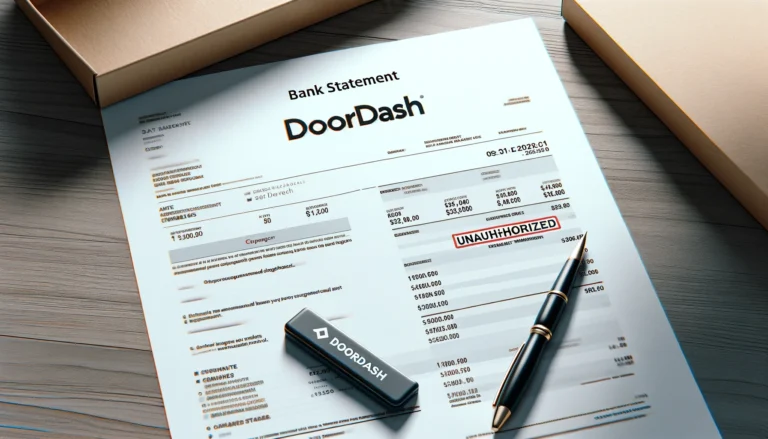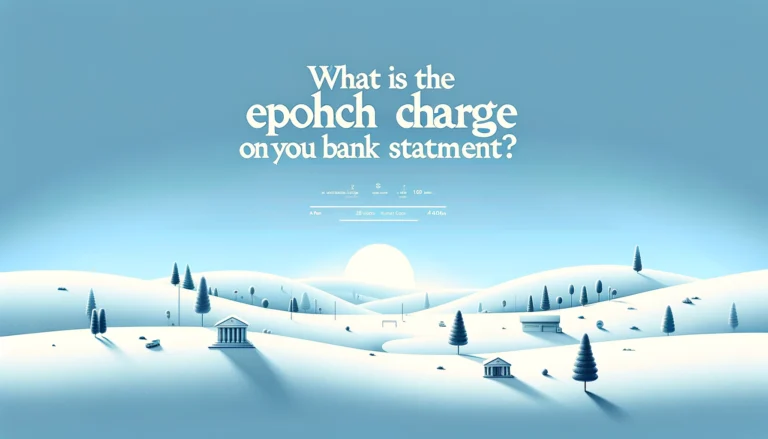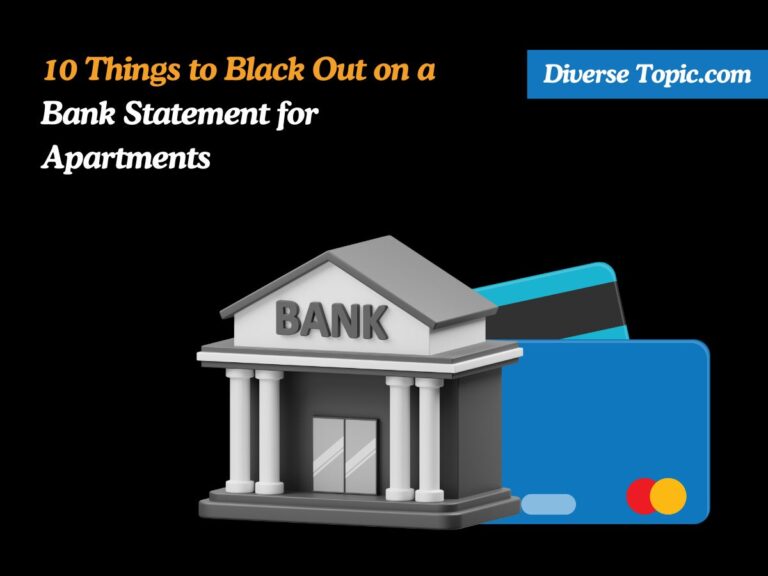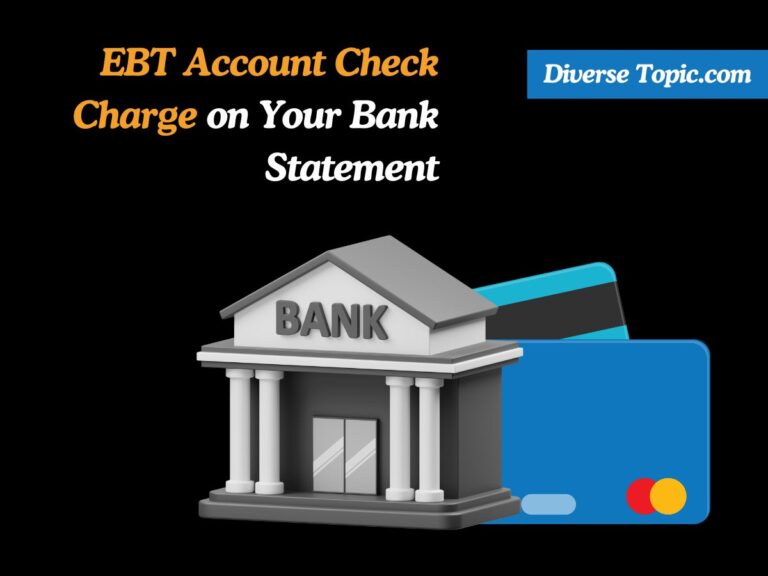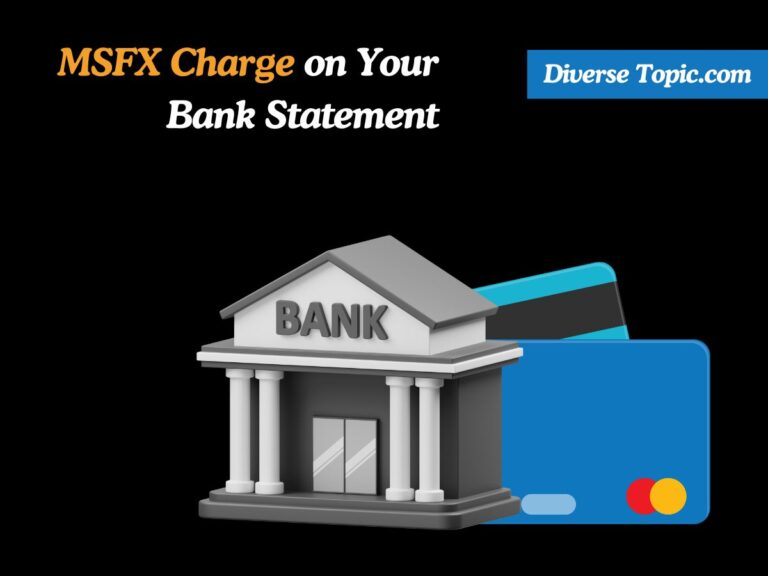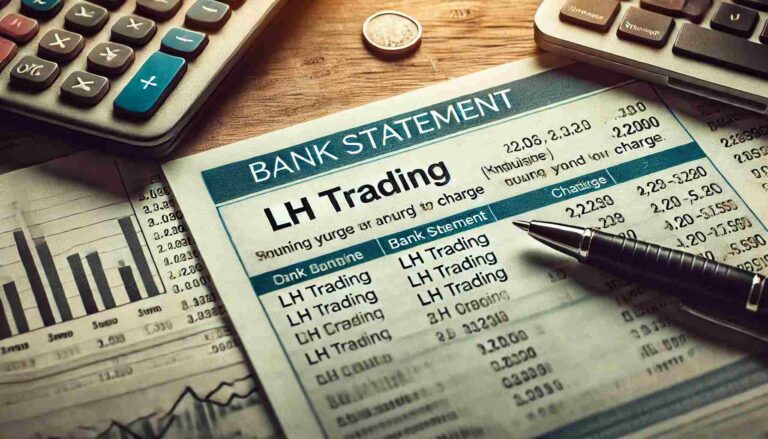Is It Safe to Share Your Bank Statement With Others?
There are situations where sharing your bank statements is required, but it must be done carefully to protect your financial data. This in-depth tutorial examines whether it’s OK to discuss your bank statements, along with safe practices and necessary safety measures.
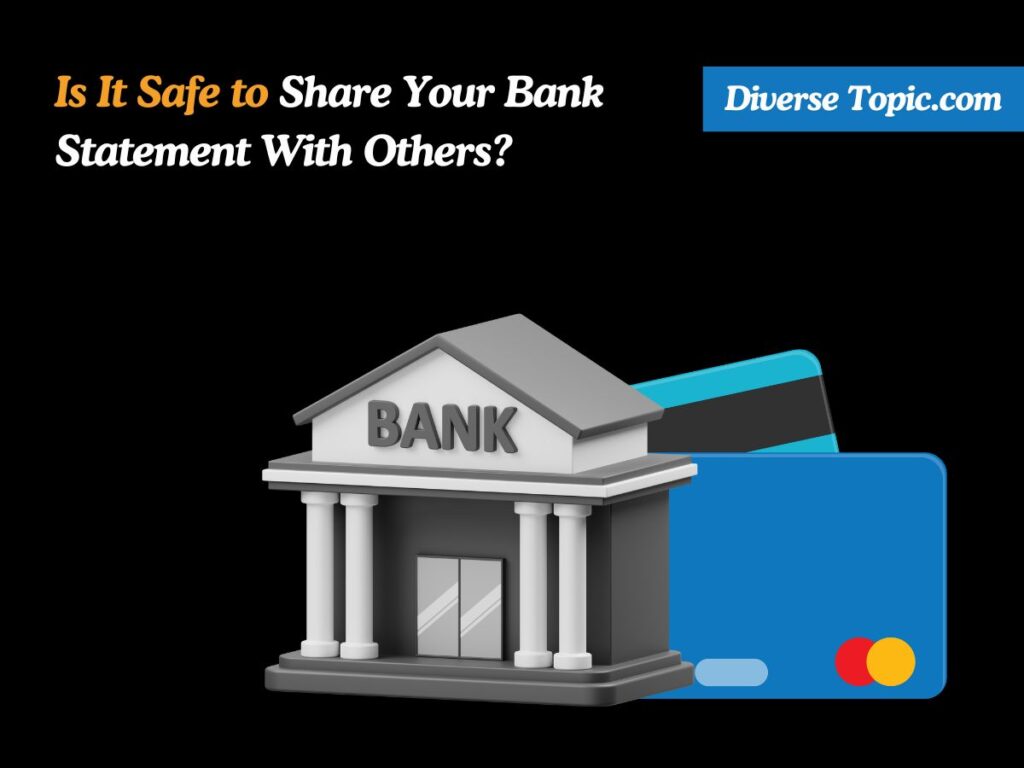
Is It Safe to Share Your Bank Statements?
While sharing your bank statements is often necessary, it is crucial to handle this process securely:
Verify the Requestor:
- Trusted Entities: Make sure the people or organizations you share your remarks with are reputable and authentic. Before submitting any sensitive information, be sure the requestor is who they say they are and that their request is legitimate.
- Verify Requests: Take caution if a request appears out of the ordinary or uninvited. Scammers sometimes pose as trustworthy organizations in order to get personal data.
Use Secure Channels:
- Secure Transmission: Use secure channels to send your bank statements. Steer clear of transmitting them over insecure networks or unencrypted email. If offered, make use of safe web portals or encrypted file-sharing services.
- Avoid Public Wi-Fi: Public Wi-Fi networks should not be used to send important documents since they might be unsafe.
Redact Sensitive Information:
- Personal Information: Think about redacting or concealing sensitive information such as account numbers, transaction data, and personal identifiers that you don’t need the receiver to view before sending your statements.
- Focus on Relevant Sections: Share only the sections relevant to the request. For example, if a lender needs proof of income, only provide the sections showing income and account balance.
Monitor Your Accounts:
- Check for Unauthorized Activity: After exchanging your papers, keep a regular eye on your bank records for any indications of unusual or suspicious behavior.
- Report Issues: If you notice anything unusual, report it to your bank immediately to mitigate potential fraud or identity theft.
When You Might Need to Share Your Bank Statements?
Applying for a Loan:
- Purpose: Lenders use bank statements to verify your income, expenses, and financial stability to assess your creditworthiness.
- Details: Statements for the previous three to six months may be required of you. This aids the lender in assessing your ability to repay the loan and if you have a steady source of income.
Applying for a Credit Card:
- Purpose: Credit card issuers may request bank statements to confirm your income and financial stability.
- Details: Giving the issuer current statements aids in their assessment of your capacity to manage credit card debt and make on-time payments, just like it does with loan applications.
Renting an Apartment:
- Purpose: Bank statements are frequently requested by landlords to confirm your ability to pay the rent and your stability.
- Details: Statements from the previous three to six months will show that you are a reliable financial source and that you can pay your rent on time.
Applying for a Job:
- Purpose: In order to confirm your credit history and financial accountability, many companies, particularly those in financial professions, can ask to see bank statements.
- Details: This is especially typical for jobs involving money, where having sound financial judgment is essential.
Applying for a Visa:
- Purpose: Immigration authorities may request bank statements to confirm that you have sufficient funds to support yourself during your stay.
- Details: This guarantees that the nation where you are requesting a visa won’t have to deal with your financial load.
Also Know What Is the SXM SIRIUSXM.COM/ACCT Charge.
When You Should Avoid Sharing Your Bank Statements?
Unverified Requests:
- Scams and Fraud: In the event that you are unable to confirm the requestor’s identity, do not provide your statements. When responding to unsolicited demands for sensitive information, use extra caution..
Public Platforms:
- Avoid Posting Online: Never share your bank statements on social media or in open forums as they are insecure and might give identity thieves access to your personal data.
Insecure Channels:
- Secure Transmission Only: Avoid using insecure methods to send sensitive documents. If the requestor does not provide a secure method, consider whether sharing your statements is absolutely necessary.
Things to Take Care of While Sharing Bank Statements?
Sharing your bank statements requires careful handling to safeguard your sensitive financial information. Here are key precautions to consider:
Black Out or Redact Personal Details:
Examine your bank statements carefully before distributing them, and be sure to redact or black out any personal information that is not absolutely necessary for the receiver to see. This includes:
- Social Security Number: Protect against identity theft.
- Address and Phone Number: Prevent misuse of personal contact information.
- Other Sensitive Data: Any additional details that could be used for fraudulent purposes.
Remove Irrelevant Transactions:
Ensure that the bank statements you share only include transactions relevant to the request. This helps in several ways:
- Privacy: Prevents unnecessary exposure of personal transactions.
- Relevance: Focuses the information on what is needed, making it easier for the recipient to process.
Verify the Request:
Confirm that the entity requesting your bank statements has a legitimate need for them. To ensure the request is valid:
- Legitimacy Check: Verify the requestor’s identity and their reason for needing the information.
- Seek Advice: Consult with a financial advisor or attorney if you have any doubts about the request’s legitimacy.
Use Secure Methods to Transmit the Statements:
When it comes to sending your bank statements, choose secure methods to protect your data from unauthorized access:
- Avoid Insecure Channels: Avoid submitting statements by fax or email as thieves may intercept these communications.
- Secure Options: Use encrypted secure file-sharing services or, if possible, transmit hard copies by hand.
Ensuring that the transmission method is secure minimizes the risk of your information being compromised.
Keep a Record of the Request:
Documenting the process helps in tracking and managing the security of your bank statements:
- Request Records: Maintain a record of the request and all related correspondence.
- Track Usage: You can keep an eye on who is using and accessing your statements with the use of this documentation.
Protecting Your Sensitive Information
Shred Physical Copies:
- Safe Disposal: If you are sending hard copies of your bank statements, make sure you trash any unnecessary or old copies of the paperwork.
Use Strong Passwords:
- Protect Digital Copies: If storing or sharing digital copies, ensure they are protected with strong passwords and encryption.
Review Privacy Policies:
- Understand Practices: Examine the recipient’s privacy rules to become acquainted with how they manage and safeguard your information.
Conclusion:
Sometimes sharing your bank statements is inevitable, but you must proceed cautiously while doing so. You may reduce risks and preserve your financial privacy by making sure you share your statements with reputable organizations, transmitting information securely, and securing sensitive data. Always confirm the request’s veracity, and abide by secure sharing best practices to guard against identity theft and fraud.

